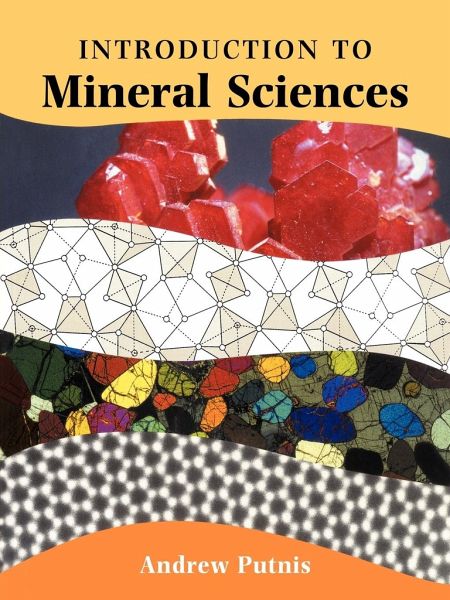
An Introduction to Mineral Sciences
Versandkostenfrei!
Versandfertig in 1-2 Wochen
110,99 €
inkl. MwSt.
Weitere Ausgaben:

PAYBACK Punkte
55 °P sammeln!
The subject of mineralogy is moving away from the traditional systematic treatment of mineral groups toward the study of the behaviour of minerals in relation to geological processes. A knowledge of how minerals respond to a changing geological environment is fundamental to our understanding of many dynamic earth processes. By adopting a materials science approach, An Introduction to Mineral Sciences explains the principles underlying the modern study of minerals, discussing the behaviour of crystalline materials with changes in temperature, pressure and chemical environment. The concepts requ...
The subject of mineralogy is moving away from the traditional systematic treatment of mineral groups toward the study of the behaviour of minerals in relation to geological processes. A knowledge of how minerals respond to a changing geological environment is fundamental to our understanding of many dynamic earth processes. By adopting a materials science approach, An Introduction to Mineral Sciences explains the principles underlying the modern study of minerals, discussing the behaviour of crystalline materials with changes in temperature, pressure and chemical environment. The concepts required to understand mineral behaviour are often complex, but are presented here in simple, non-mathematical terms for undergraduate mineralogy students. After introductory chapters describing the principles of diffraction, imaging and the spectroscopic methods used to study minerals, the structure and behaviour of the main groups of rock-forming minerals are covered, and the role of defects in the deformation and transformation of a mineral are explained. The energy changes and the rate of transformation processes are introduced using a descriptive approach rather than attempting a complete and rigorous treatment of the thermodynamics and kinetics. Examples and case histories from a range of mineral groups are set in an earth science context, such that the emphasis of this book is to allow the student to develop an intuitive understanding of the structural principles controlling the behaviour of minerals.




